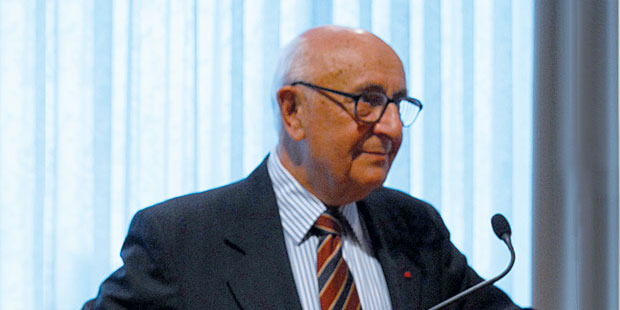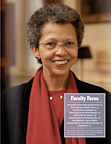Late to the Academy, But Sharing a Lifetime of Learning
Printer Friendly VersionCharles L. Denison Professor of Law Emeritus and Judicial Fellow Theodor Meron was chosen to give the American Council of Learned Societies’ Charles Homer Haskins Prize Lecture in May to reflect on “A Life of Learning.” Indeed, Meron’s accomplishments and contributions have not been limited to the academy, as he didn’t begin teaching full time until he was 48. Instead, he confessed to the hope “that in some small way these endeavors have contributed to our thinking critically about how to create a more humane world.”
Born in Poland in 1930, Meron lost six years of his childhood to ghettos and work camps, and most of his family to the Holocaust. He emerged from World War II hungry for learning. Later, he became determined to apply his legal studies at Hebrew University, Harvard Law School and Cambridge University to “working in areas which could contribute to making atrocities impossible and avoiding the horrible chaos, the helplessness, and the loss of autonomy which I remembered so well.”
Despite the humble tone of his lecture, Meron has made immense contributions—during 20 years as the legal adviser for the Israeli Foreign Service, four years as Israel’s ambassador to Canada, a year in the U.S. State Department as a counselor on international law, two years as president of the U.N. International Criminal Tribunal for the Former Yugoslavia and, since 2001, as appeals judge to the Tribunal. As a judge, Meron has felt privileged to write what he calls the “most exciting literature of all,” the jurisprudence of international criminal law in the “seminal Srebrenica case of General Krstic, for instance, which established that genocide can be committed even in a circumscribed geographical area.”
In introducing Meron, ACLS President Pauline Yu emphasized his “sustained effort to move beyond boundaries—both those of nations and of disciplines—to bring people together to explore common concerns and causes.” She described him as “a leading figure in the scholarship of international law but also deeply committed to its practice and development today.”
Meron attributed his success largely to “chance and seized opportunity,” but his belief that crimes against humanity can be avoided is also a factor. He cited from his 2006 book, Humanization of International Law: “It seemed to me obvious that repression of human dignity occurs in a continuum of situations of strife, ranging from normality to full blown international wars, and that all these norms must be treated as a whole to provide for a maximum of protection to human beings.”
—

